6 Small Business Tips for Tax Season 2023
Tax season can be a daunting time for small business owners. However, with careful planning and preparation, you can navigate the process with confidence and minimize stress. Here are the top 6 small business tips to help you make the most of tax season and keep your finances in order.
Here are the Small Business Tips for Tax Season 2023

1. Stay Organized Throughout the Year: Keeping your financial records organized throughout the year is crucial for a smooth tax season. Make sure to diligently track your income and expenses, maintain accurate records of all business-related transactions, and keep them organized in a system that works for you. This will save you time and effort when it comes time to file your taxes.
2. Understand Tax Deductions: Familiarize yourself with tax deductions that apply to your small business. Deductions can help reduce your taxable income and lower your overall tax liability. Common deductions for small businesses include office expenses, travel expenses, equipment purchases, and business-related education or training expenses. Make sure you have proper documentation to support your deductions and consult with a tax professional if you have any questions.
3. Maximize Retirement Contributions: Contributing to a retirement plan, such as an IRA or 401(k), can have tax benefits for small business owners. Retirement contributions are typically tax-deductible and can lower your taxable income, reducing your overall tax liability. Additionally, contributing to a retirement plan is a wise long-term financial strategy for your personal retirement savings.
4. Keep Personal and Business Expenses Separate: It’s important to keep your personal and business expenses separate to ensure accurate record-keeping and tax reporting. Avoid mixing personal and business expenses on the same credit card or bank account. Use separate accounts and credit cards for your business transactions to make it easier to track and report business expenses during tax season.
5. File on Time and Seek Professional Help if Needed: Make sure to file your small business taxes on time to avoid penalties and interest. If you’re not confident in your ability to file your taxes accurately, consider seeking professional help from a certified public accountant (CPA) or tax preparer. A tax professional can help you navigate complex tax laws, identify potential deductions, and ensure that your taxes are filed correctly.
6. Plan for Next Year’s Taxes: Tax planning is an ongoing process that should be part of your overall financial strategy. Review your business finances regularly and make adjustments as needed to optimize your tax situation for the next tax year. Consider working with a tax professional to develop a tax strategy that aligns with your business goals and maximizes tax savings.
Tax season doesn’t have to be overwhelming for small business owners. By staying organized, understanding tax deductions, maximizing retirement contributions, keeping personal and business expenses separate, filing on time, and planning for the future, you can navigate tax season with confidence and ensure that your small business stays financially healthy. Remember to consult with a tax professional if you have any questions or concerns, and stay proactive in managing your small business taxes throughout the year.
If you have any questions or concerns, don’t hesitate to reach out to a tax professional for guidance. https://calendly.com/jdtaxaccounting


